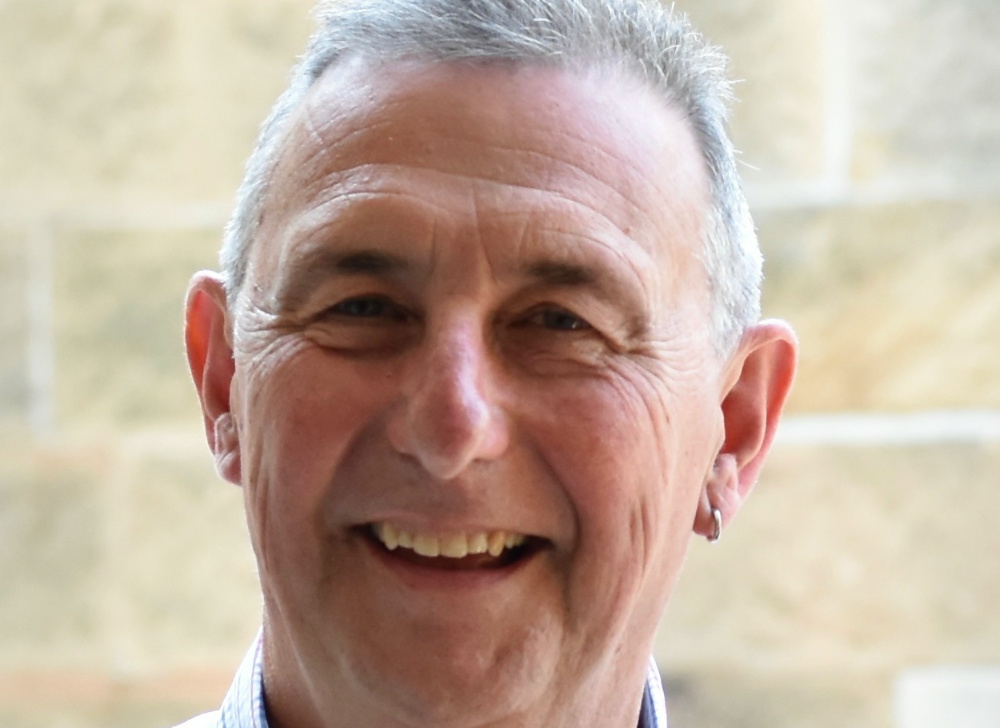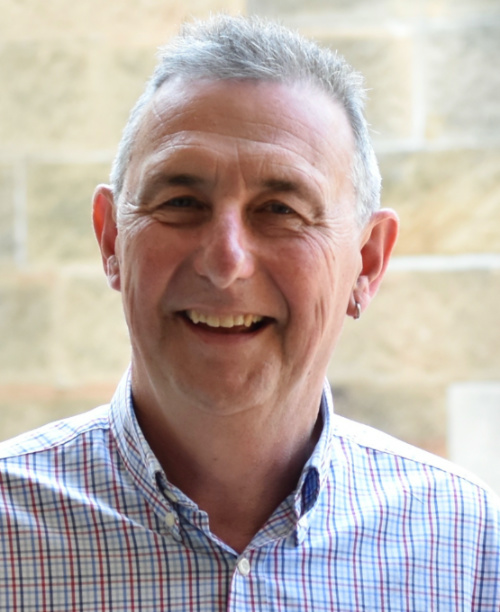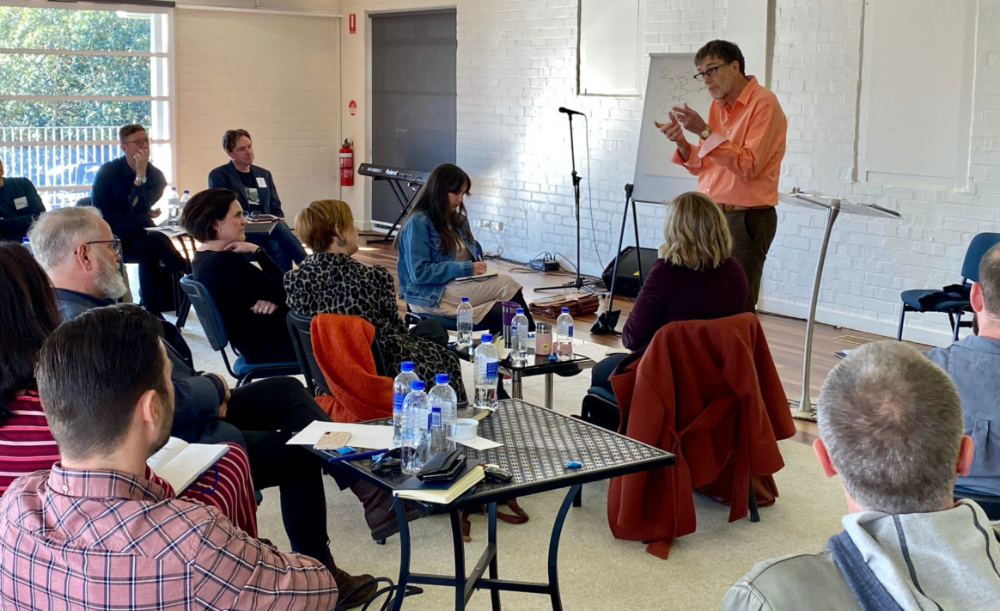
JO KADLECEK speaks with Rev Ed Vaughan, principal of the Sydney-based St Michael’s Institute, about the organisation’s vision and his personal hopes for church and ministry leaders…
Last year, a group of Christians with a vision to reimagine ministry training and leadership development in Australia established St Michael’s Institute in Sydney. Their goal is to prepare emerging leaders, women and men from across Australia, to be equipped “in mission and ministry that is Spirit-filled, Word-based, orthodox and inclusive” as they lead the church in the second half of the 21st century. Sight caught up with SMI Principal Rev Ed Vaughan, the day before the organisation’s first live symposium this week involving more than 25 leaders – and asked him about SMI’s vision and his personal hopes for church and ministry leaders…
You’ve been an Anglican minister across Sydney as well as Ireland for more than 25 years. You’ve also led a church planting ministry in Sydney’s inner west and been a part of Arrow Leadership ministries. What are some of the qualities you’ve seen in effective ministers and leaders?
“It’s always about integrity and character. I can’t stress it enough: leadership in general and Christian leadership in particular is about integrity and character. Henry Cloud talks in his book Integrity: The Courage to Meet the Demands of Reality that leaders leave a wake behind them, like the wake of a boat, and always leave some sort of impact. The most effective leaders cultivate good relationships and also know how to achieve the organisation’s primary tasks. Cloud believes it’s about both integrity about relationships and completing the task so that the wake is a good one. In other words, a leader can’t be so invested in the relationships that the task gets forgotten, nor can the leader prioritise the task at the expense of relationships. Effective leaders do both well.
“Whenever I teach on character in leadership modules, I use some of this material, asking students to identify leaders in their lives who were good at relationships and tasks. Sadly, most struggle to remember one who exemplified both. Many were good at one but at the expense of the other. In other words, good leaders can’t be good only at relationships if they don’t also execute the task of the organisation.”

Rev Ed Vaughan. PICTURE: Supplied.
IN SHORT – REV ED VAUGHAN
A person I admire…Tim Winton, an Australian author
A book that inspired me…The Catcher and the Rye
A favourite Bible verse…Luke 12:48 (“But the one who does not know and does things deserving punishment will be beaten with few blows. From everyone who has been given much, much will be demanded; and from the one who has been entrusted with much, much more will be asked.”
Even though there are many good resources on leadership and Bible colleges throughout Australia, there still seems to be a range of leaders stepping down, and even shortages of vocational ministers in some denominations. What’s gone wrong?
“I think what we haven’t done very well is think theologically about leadership and have instead tended to shy away from it as a topic of study. We’ve assumed we don’t need to deal with it or simply called it too pragmatic, which I hear a lot. But that response is a devaluation of leadership. The word ‘leadership’ itself probably isn’t a Biblical word but the concept is certainly Biblical as we see leaders, prophets and kings exercising leadership, good and bad. I think we’ve been oblivious to the theological significance of leadership and therefore have poorly equipped ministers and church leaders.
“I also don’t think we’ve helped them think well about soul care, or about caring for themselves. When I think about soul care, I think of spirit, body, mind, emotions and intellect, about all of who we are as humans in an earthly body, and yet I’m not sure we’ve helped people in vocational ministry take good care of their souls or bodies. We sort of spiritualise our lives and our busy ‘ministries’, as if Jesus Himself wasn’t really human and didn’t need to take care of His own humanity. If we don’t look after our bodies and our whole beings, how can we do the job of preaching the Gospel?”
How is St Michael’s Institute different from other leadership training programs?
“The key word I like to use here is transformational. It doesn’t make us necessarily unique but we’d like to see ministry training that intentionally provides transformational opportunities. That means we’re trying to create space for the Holy Spirit to do His work. For instance, we emphasise the importance of a leadership guide, a person who assists us on our leadership spiritual journey (ie, coach, mentor, spiritual director, supervision, etc) Many [of these roles] overlap but they all connect a leader’s impact to the power of reflection. In other words, we need someone to ask us reflective questions that help in the process of leading. We can’t assume we all learn from experience – we often repeat the same mistakes. It’s only when we stop and reflect and look at what’s happened – which comes most often from an external person asking the hard questions – that we give the Holy Spirit an opportunity to change us.
“So our vision at SMI is to provide these opportunities through four key words that frame our work: missional, contextual, flexible and transformational. Each guiding principle or core value shapes our approach to integrated leadership development. In all we do, we hope these four areas are at the heart of equipping leaders.
“Often leadership training produces people who know more than they can live, which is why we need each of these principles. We want to equip people to learn theology and live it, not just know it in an intellectual sense, but to live it. Discipleship is not just about knowing the Bible – it’s asking the question, why? Why should we study the Bible? And the answer of course is to learn to love God and neighbour. Knowing more about the Bible is not the ends to loving God and loving our neighbours, it’s the means. If I know a lot about theology or the Bible but haven’t become more loving, I’ve missed the mark. Too often theological training becomes an academic exercise, when the point is to love God and love our neighbours.”
You’ve written that the church is “facing some huge challenges as well as rapid changes”, and consequently, ministry leaders will need new approaches and skills for these future changes. What do you see as some of these primary shifts in the church and how can leaders best respond?
“I became a Christian in 1980 and now the connection between church and the world looks very different. I think that was a time in Australia where it was hard to tell the difference between being a Christian and being a nice, middle-class person. But now the gap between those two seems large. Forty years ago, mainstream culture seemed to overlap or connect with the church. Now there’s a wide separation between the two.
“This became clear to me, for instance, when Christian churches recently attempted to speak to the same sex debate and there was all sorts of hype – on all sides. I think some Australians genuinely wanted churches to help them understand the opposition because to them, there seemed to be a strong social justice argument for saying yes to same sex marriage. They were wanting help to understand the case for saying no and I don’t think we did a very good job at explaining our sexual ethics or our mission and perspective to those who don’t understand it. In fact, I think we didn’t understand it ourselves, so we didn’t explain it very well.
“What that told me was that we hadn’t had enough little conversations with people along the way, so the big conversations became that much harder. There was a time when Christians were speaking in the public square, and, of course, the Royal Commission [into Institutional Reponses to Child Sexual Abuse] didn’t help our case. We’ve missed too many opportunities for public repentance and instead opted for compliance. We’ve created an excellent bureaucratic response, but we didn’t kneel in public and weep over our sins and complicity. I’m not opposed to the compliance approach, but repentance is much harder and more likely to have a greater impact. Law doesn’t change the heart. All that to say, we need leaders and pastors who are willing to be repentant and vulnerable.”

Tony Golsby-Smith shown here with SMI’s first leadership symposium participants on 26th August. PICTURE: Courtesy: SMI
In addition to consulting and leadership coaching, SMI has a new podcast called ‘The Blunder Bus‘, as well as a blog, resources and symposiums. Tell us about these.
“Because we’re trying to create a conversation, the blog and the podcast are two of the ways we’re exploring issues that shape leaders. On ‘The Blunder Bus’ podcast, for instance, we ask leaders to talk about their failures because that’s likely to lead to innovation. If we can create a space that ‘normalises’ talking about failure, I believe that can help us move forward. It’s OK if we got something wrong in ministry; we can learn from it. Because if we think churches need to be doing more experimental or innovative things, we know some won’t work. They’ll fail. But talking about them can build our confidence to risk more as God leads.
“The SMI symposiums invite men and women in leadership to a small group format, no more than about 25, to learn from teachers like Tony Golsby-Smith who helps people learn how to think. Because most of us have probably never been taught how to think, Tony helps leaders to think strategically so that they come up with innovative solutions. We’re hoping this process of learning how to think can be something they go back to regularly. And we hope to host a few symposiums each year around Australia.”
What are some ways Christians can support their pastors in ministry?
“I’d encourage them to give pastors permission to be creative to lead them, not to lay their own expectations on them but to give them grace and space. Christians – not ‘pagans’ – are often the biggest impediment to the church being church. We can be too judgmental of one another. So if we could be less self-focused and more committed to Christ’s mission, less resistant to the possibility of change, I believe we’d see God work in new ways. The best way to encourage your pastor is to release him or her to lead the church into change.”
What do you hope church leadership in the year 2070 – 50 years from now – looks like in Australia?
“I pray for those leading communities then to be people who are pure in heart, who live lives that reflect the values of God’s kingdom. And who are not wearing masks!”
This interview has been edited for length and clarity.





